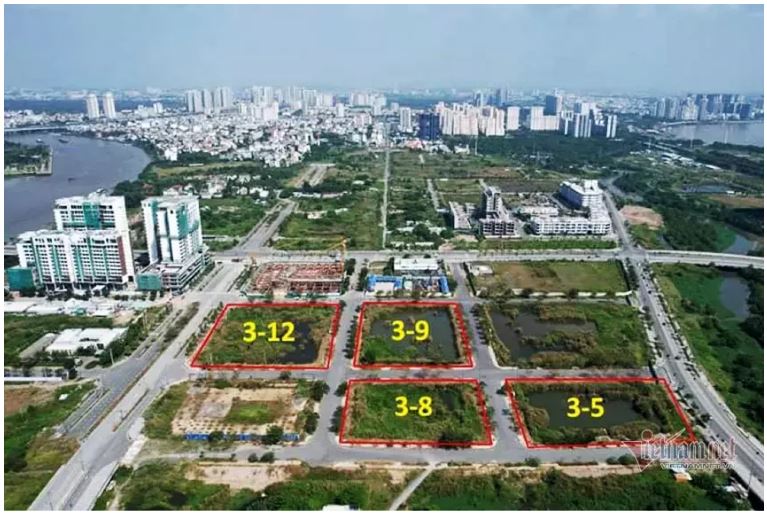Vietnam: New policies needed to control land conflicts
In order to reduce land conflicts, it is necessary to amend legal provisions and the way of implementing policies.
Speaking at the opening of the fifth plenum of the 13th Party Central Committee last week, Secretary General of the Party Committee Nguyen Phu Trong spoke about a burning issue which has lasted for two decades.
The number of complaints and petitions related to land remains at the top of the list of issues causing social tension. Many family members have fallen out with each other because of land issues. A number of people have been sent to prison because of land issues.
Some major criminal cases that have caught the attention of the public recently, in both the private and public sectors, have relations with land. Social inequality and the gap between the rich and poor is more evident when viewed from the perspective of land.
Land has become the center of social tensions and conflicts because of its increasingly high value in a rapidly transforming economy. The special significance also originates from the characteristics of each piece of land like its geographical location, ecosystem, relations between land and individuals and the community, as well as traditional cultural values that people attach to particular pieces of land.
The issues have been causing a headache for many, especially leaders at all levels. Lawsuits, tensions and social conflicts related to land have increased. The number of officials involved in criminal cases is on the rise. These have both threatened the stability of the national administration system at all levels, as well as the cohesion of the social community.
The speech of the Party Committee Secretary General Nguyen Phu Trong emphasized the need to reach an agreement about the awareness of basic issues related to land. Secondly, it is necessary to improve land policies and make them more reasonable to reduce lawsuits and conflicts over land, thereby promoting the particularly important role of land resources in development.
Mechanisms and policies
In principle, land is collectively owned by the people and administered by the government on their behalf. However, if considering the rights related to land, Vietnamese have no fewer rights than people in countries which apply private ownership.
The problem does not lie in the ownership mode. Public land exists in many countries, which is put under management of the authorities or community organizations.
Recent studies have pointed out that one of the leading causes of land disputes in Vietnam is the ambiguity of land regulations. It is the vague concepts in the legal system and the administrative regulations on land management which have allowed policy enforcement officers to interpret legal regulations arbitrarily and exploit legal and administrative loopholes to seek profits.
Long-lasting complaints and lawsuits are the reactions of the people who no longer hold the land.
Experts believe that in order to settle the problem, the Land Law needs to be amended. However, in some localities, land conflicts are not a burning issue, though the same legal system is applied in all localities.
This shows that the complexity of the issues related to land not only originates from the legal system, but also relations with the ways local authorities act when observing the laws. This also shows the importance of mechanisms and policy tools.
Direct mechanisms emphasize the role of authorities in policy implementation. Indirect mechanisms dignify the cooperation between the government and non-state subjects, or even minimize direct involvement, letting involved parties solve problems themselves under competition or negotiation.
Meanwhile, policy tools comprise specific means used for implementation. The government can use the tools of organization, power, finance and information to change the behaviors of targeted groups.
Reducing authorities’ involvement in land recovery
Land conflicts can occur among individuals who use land, between individuals and businesses, and among businesses. However, because of the typical conditions in Vietnam, the conflicts and disputes mostly occur between people and local authorities related to decisions to take back land and change land-use purposes.
The 2013 Land Law emphasizes the direct involvement of the government with public power-based enforcement tools. This means that the government can release decisions on taking back land, set land price frames, and coerce people to implement decisions in the case of long-lasting disputes.
The advantages of this are legitimacy, cost savings, and guarantee of project implementation schedules whenever the local government wants to take back land. The drawback is the lack of flexibility, and improper response to the needs of the people, and the coercive nature of decisions.
The Land Law stipulates that compensation paid to people during site clearance must be based on prices close to market prices. However, this cannot be done because the land price frames set by local authorities are always much lower than market prices.
Direct government involvement in the land recovery process is necessary. It will reduce the opportunity for abuse of power, as well as legal loopholes that are used to seek profit from land-related decisions.
Dr Nguyen Van Dang
(Ho Chi Minh National Academy of Politics)


 English
English




